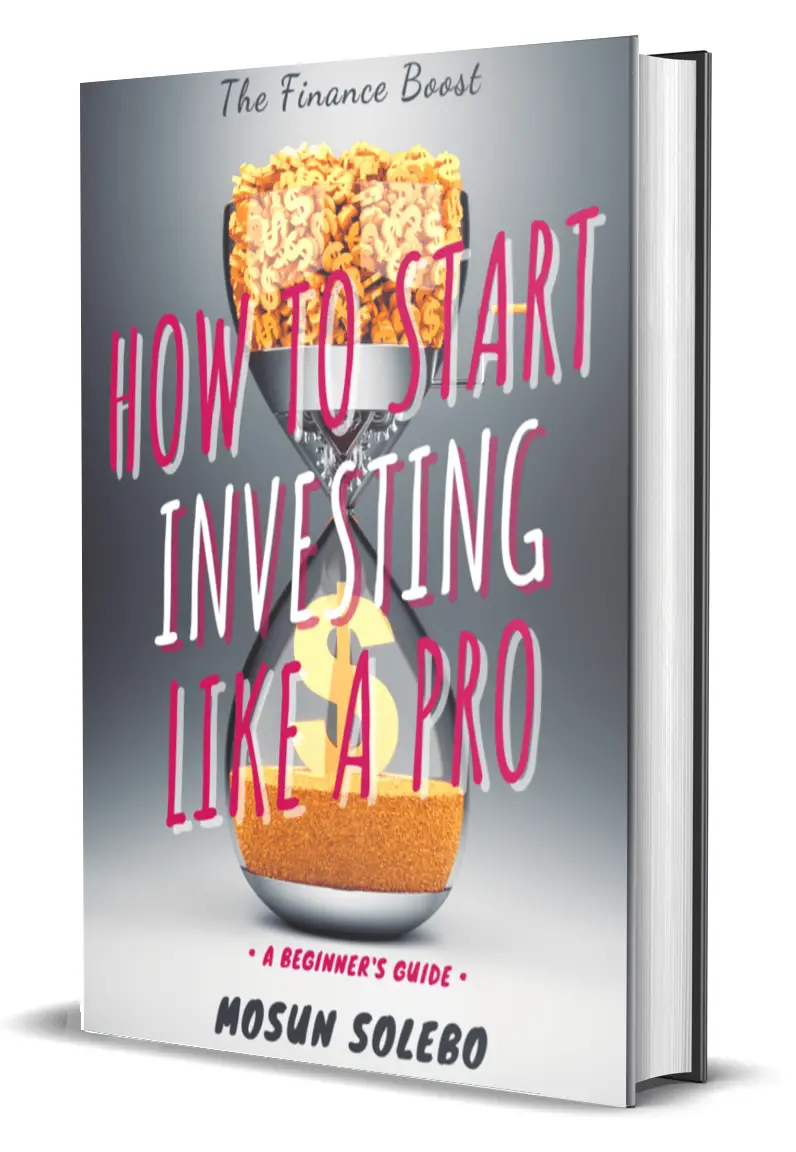It’s essential to know the liquidity of an asset before you invest, mainly depending on what your goals are for that investment. So let’s talk about which investments have the least liquidity.
The investment with the least liquidity is one that is the hardest to convert into cash quickly without losing its value. Right off the bat, people consider real estate, certificates of deposits, and retirement accounts to have the least liquidity. Whereas cash and cash equivalent assets have the most liquidity.
Let’s talk more about liquidity and what to know about it.
What is Liquidity?

To understand the liquidity of an investment, you have to consider two things:
1. Ease of selling
2. No loss of value.
Liquidity is the ability of an investment to be easily converted into cash without reducing the value of that asset. You can easily recognize that cash has the most liquidity because it’s already cash! You can easily access money in a checking or savings account through debit cards and bank transfers.
However, a real estate property cannot be quickly sold for cash. That’s because you must first assess the property’s value, find a buyer, and ultimately sell. This process can take several months to complete.
Even some bank deposits are not easily transferred to cash because of a term you agree to when you make such a deposit. An excellent example of that is a Certificate of Deposit (CD). With CDs, you have to commit to a period ranging from months to several years to access your money without losing some of its value.
Note that while it might be easy to convert an asset to cash, if you incur a loss at the time you want to sell that investment, then it’s not liquid at that time. An example would be selling stocks when the market is in a downturn.
So why would anyone want to have investments with low liquidity? Well, the more liquid an investment is, the less likely it is for that investment to increase in value. So you have a better chance of getting more value from your investment if it’s less liquid than cash.
Why is liquidity necessary?
The liquidity of an investment is crucial because it determines how easily and quickly you can sell your investment when you no longer want it or need the cash.
It’s also good to understand how liquid an investment is to invest appropriately for short, medium, and long-term goals. As a general rule of thumb, the best investments for short-term investment goals are assets with high liquidity. However, long-term investment goals can be achieved with low-liquidity investments. That’s because you have more time to sell such investments if you need to.
Which investments have the least liquidity and why?
1. Real Estate and Land
It can take several months to even years if you own any real estate property and want to sell it for cash. The first hurdle is finding a buyer willing to pay what you want for the property. The buyer-finding process is the part that takes the most time.
After finding a buyer, you must go through the closing process. This can involve the seller needing to do due diligence on the property, conduct inspections, and do property valuations to determine the property’s actual value. Finally, you can sell your house and get paid if everything is successful.
Unfortunately, sometimes it’s easy for anything to go wrong during this process too, and cause the seller to fall through.
So because of how long it takes to sell your real estate property and the possibility of making a loss, real estate is highly illiquid.
Related Post: How To Invest In Property With Little Or No Money
2. Certificate of Deposits (CDs)
A certificate of deposit (CD) is like a savings account at the bank where you keep a fixed amount of money at the bank for an agreed period (called the “maturity period”). In return, the bank pays you interest. This maturity period or term can range from 30 days to 5 years. Typically, the longer the duration of a CD, the more interest the bank will pay you.
If you want to withdraw your money from a CD before the maturity date, you would lose the interest on the funds and incur penalty fees. That’s a significant a CD is one of the investments with the least liquidity.
Note that this is a very low-risk investment because the value of your money is almost guaranteed to remain intact. However, withdrawing the money and breaking the term agreement would cause you to lose some money.
There are several reasons why you may need or have to withdraw the money from your CD account earlier than the maturity date. One main reason is that an emergency requires money. This is why it’s imperative to always have a separate emergency fund that’s not tied up in any investment so you can access it easily whenever you need to.
3. Art and Collectibles
Art and collectibles are curated or niche assets. They’re also assets that are associated with unique tastes and hobbies. This makes them have a smaller pool of buyers and investors. Arts and collectibles are illiquid investments because of the need to find a buyer in an already niche market, which can take a lot of time.
Also, they can be costly and require high maintenance. So finding a buyer that agrees to buy them for your asking price can take time and effort.
NFTs, baseball cards, coins, and exotic watches are all examples of today’s collectibles.
They’re a good investment for people that love these items and are passionate about them. However, they’re generally not an excellent long-term investment for the general population because of their low liquidity and small market,
4. Privately-Held Business
You can also start a business of your own as an investment. However, such investments may require huge capital and/or human investments. Starting a business is a great way to build future wealth, but the results and returns from the business may be far out. It’s also expected that a business may not see any profits for several months and even years.
The good news is that if you build a viable business, the returns from your investment can be very substantial. Companies like Microsoft, Amazon, and other admirable companies today were once privately-held businesses. Today, the companies yield returns for both the founders and public shareholders that also chose to invest in the companies by buying stocks.
5. Investment in Retirement Accounts
The central theme around retirement accounts is that you have restricted access to them until you’re 59-1/2 years old, which is when close to the U.S retirement age of 65. There’s a steep penalty of 10% for trying to withdraw money from your retirement account before age 59-1/2
This automatically makes retirement accounts very illiquid. But, of course, these retirement accounts and the penalty associated with them force you not to touch the money you’ve saved and invest for retirement. That helps you accumulate money and have compound interest do its thing without disturbance.
If these retirement investment accounts weren’t structured this way to have low liquidity, so many retirees would barely have enough money to retire.
Don’t get me wrong, there’s still a shortage of retirement savings in the U.S, with the average at $167,944. Still, the low liquidity of retirement accounts plays a role in how much retirees can have and spend in retirement.
Some retirement accounts include 401Ks, 403b, Individual Retirement Accounts (IRA), Roth IRA, and SEP IRA.
Although with a Roth IRA, there’s some leeway to withdraw only contributions that you’ve made to the account that are 5 years old or more.
6. Stocks and ETFs
Stocks and ETFs are great long-term investments to accumulate money and build wealth. In fact, so many self-made millionaires are regular people with no inheritance. Instead, they made their wealth by consistently investing in the stock market over time.
Stocks and ETFs can be bought in a brokerage account and are easy to access, sell and convert into cash without any issues (as long as it’s not in a retirement account).
However, the stock market can be very volatile sometimes. There are often long periods of stock market boom known as a “bull market” and periods of downturn known as a “bear market.” During the bear market, the values of stocks and ETFs drop. If you sell these investments during a downturn, you’ll likely lose some or even all of your capital.
This can force you to wait and leave your investments in the stock market longer than you would like to avoid losing your money. Therefore, stocks and ETFs are low-liquidity investments in times of a bear market.
Again, I recommend having a separate emergency fund that stays in a regular saving account for easy access. Also, avoid investing money into the stock market that must be spent within five years.
Related Posts:
Investing for Beginners with Little Money – 13 Easy Ways to Invest
How to Start Investing Your Money Like a Pro – The beginner’s guide
7. Exotic Cryptocurrencies and NFTs
Cryptocurrencies and NFTs are relatively new as asset classes for investments. However, many investors now add cryptocurrencies to their investment portfolios.
While Bitcoin and Ether are popular cryptocurrencies, newer cryptocurrencies are created daily. These new cryptocurrencies have yet to be widely known or accepted, which makes it hard to find someone to sell such cryptocurrency to. This makes such exotic cryptocurrencies to be highly illiquid.
NFTs (Non-fungible tokens) are also cryptographic assets based on blockchain technology. Many believe them to be the digital answer to art and collectibles. Owning an NFT of artwork proves you as the single authoritative asset owner.
NFTs are still in the early-adopter stages of acceptance and appeal to a unique audience, like with arts and collectibles, which can make it hard to liquidate for cash quickly.
Generally, cryptocurrencies and NFTs are very risky and speculative assets. So, do detailed research on any crypto asset before investing in them.
Key Takeaways
- The liquidity of an investment is dependent on how easily and quickly you can sell that investment.
- Generally, low-liquid investments have the potential to generate more returns than high-liquid investments.
- Real estate is widely considered to be an investment with the least liquidity.
- Low-liquid investments often fluctuate in value based on the market’s timing and buyers’ availability.
- High-liquid investments like CDs, savings accounts, and fixed deposit accounts usually have a guaranteed rate of return.












0 Comments